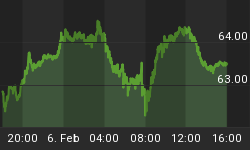Recent incidents of violence in Norway and London have made us understandably uncomfortable here at home, as many fear that a worsening economy will lead to violence and unrest in American cities. This is why Congress must view the economy as its first priority and a matter of national security: unless and until we get our fiscal house in order to foster economic growth, civil society will continue to deteriorate.
The fundamental lesson every American should learn from these incidents is that government cannot protect us. No matter how many laws we pass, no matter how many police or federal agents we put on the streets, a determined individual or group can still cause great harm. Both Norway and England have strict gun control laws, and London in particular has security cameras monitoring nearly all public areas. But laws and spy cameras are useless in the face of lawless mobs or sick mass killers. Only private individuals on the scene could have prevented or lessened these tragedies. And we should remember that theft, arson, and property damage were not the only criminal acts in London--innocent bystanders were assaulted and killed as well. In those instances deadly force used in self-defense would have been fully justified.
Perhaps the only good that can come from these terrible events is a reinforced understanding that we as individuals are responsible for our safety and the safety of our families. This means, frankly, that we must safely own and use firearms to deter or prevent criminal assaults on our homes and persons. It is absurd to think police or government agents can protect 310 million Americans around the clock.
Thanks to our media and many government officials, however, Americans have become conditioned to view the state as our protector and the solution to every problem. Whenever something terrible happens, especially when it becomes a prominent news story, people reflexively demand that government do something. This impulse almost always leads to bad laws, more debt, and the loss of liberty. It is completely at odds with the best American traditions of self-reliance and individual responsibility.
Do we really want to live in a world of police checkpoints, surveillance cameras, and metal detectors? Do we want to imprison every disturbed or alienated individual who fantasizes about violence? Do we really believe government can provide total security? Or can we accept that liberty is more important than the illusion of state-provided security?
Freedom is not defined by safety. Freedom is defined by the ability of citizens to live without government interference unless they use force or fraud against others. Government cannot create a world without risks, nor would we really wish to live in such a fictional place. Only a totalitarian society would even claim absolute safety as a worthy ideal, because it would require total state control over its citizens' lives. Liberty has meaning only if we still believe in it when terrible things happen and a false government security blanket beckons.















